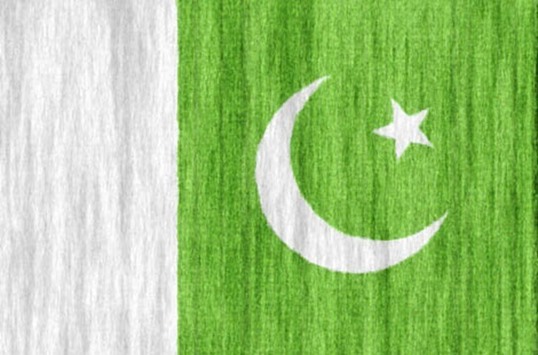Pakistani counter-terrorism forces killed the new leader of the banned sectarian Lashkar-e-Jhangvi militant group, along with three more militants, in an operation in the eastern province of Punjab, authorities said yesterday.
The killings come 18 months after police gunned down longtime Lashkar-e-Jhangvi (LeJ) leader Malik Ishaq in a separate encounter.
Among the four militants killed on Tuesday night was Asif Chotoo, also known by the name Rizwan, who was named LeJ chief after Ishaq’s death, authorities said.
“He was now heading Lashkar-e-Jhangvi,” the Counter Terrorism Department of Punjab said in a statement.
The extremist Sunni Muslim LeJ has claimed responsibility for the deaths of hundreds of civilians, mostly minority Shas.
The four suspects were killed in a shootout in Sheikhupura city, about 40km northwest of the Punjab capital of Lahore, by counter-terrorism forces acting on a tip that the group was planning an attack in Lahore.
“Big chapters of terrorism, target killings have been closed today,” the statement added.” These terrorists were merciless killing machines.”
Meanwhile, a security analyst has disclosed that the military operation Zarb-e-Azb in Pakistan’s northwest tribal region of North Waziristan Agency against militants has cost $1.9bn.
Speaking at the ‘2nd National Conference on the Economic Currents and Opportunities for Economic Development in Fata’ at the University of Peshawar yesterday, Maria Saifuddin Effendi, who teaches at the National Defence University of Islamabad, said the Pakistan Army was able to recovered tons of explosives.
“Security forces shut down bomb factories and eliminated over 500 terrorists with an expenditure of $1.9bn,” she said.
The analyst proposed that local people be involved rather than non-locals and foreigners to ensure the successful peace building in Fata.
The Pakistan Army had stated that over 3,000 terrorists were killed in the offensive that was launched in June 2014.
The Cell for Fata Studies, University of Peshawar, arranged the event.
In the opening remarks, Vice-Chancellor of University of Peshawar Dr Mohamed Rasul Jan said Fata was a national issue, whose decision must be taken quickly to safeguard the well-being of local population and national interest.
He said peace in Pakistan was only possible if there was peace in its neighbours, especially Afghanistan.
Senior police officer Syed Akhtar Ali Shah in his presentation explained the impact of militancy on socio-economic dynamics of Fata.
He said it was high time to ‘open’ tribal areas.
The officer said security situation in Fata had deteriorated after 9/11 attacks.
He said during a survey, 60% people of Fata had found to be insisting that their region was at peace before the Twin Towers terrorist attacks.
Shah said it had since become a central point for drug smuggling and illegal arms trade bringing billions of dollars to the region.
He recommended two-pronged strategy for the region: involve local people in development and give the maximum opportunities to locals and industries.
Dr Noor Shah Jehan, who teaches international relations at the University of Peshawar, spoke on the economic development in Fata from the perspective of Pakistan’s foreign policy.
He said the local Taliban had been used as a non-state actor by Pakistan for advancing foreign policy goals towards India-occupied Kashmir and Afghanistan.
Shah said inequalities in the region were in part due to the Dubai phenomenon, smuggling of goods and maintenance of the Malik system.
He suggested that policymakers move from geo-politics to geo-economics in Fata.

award
